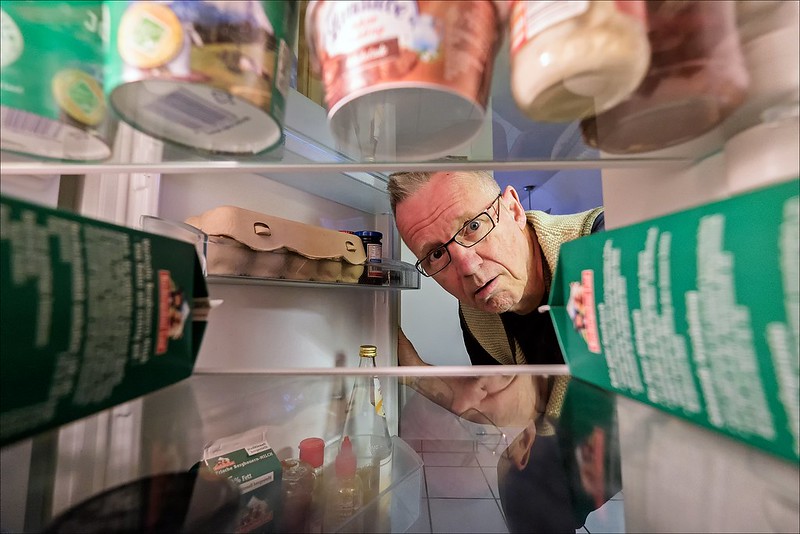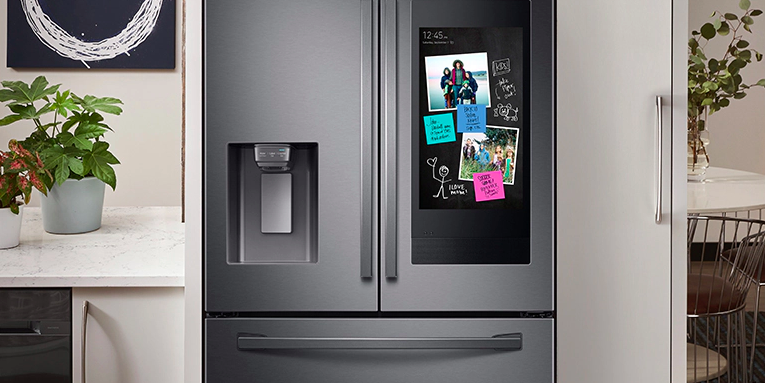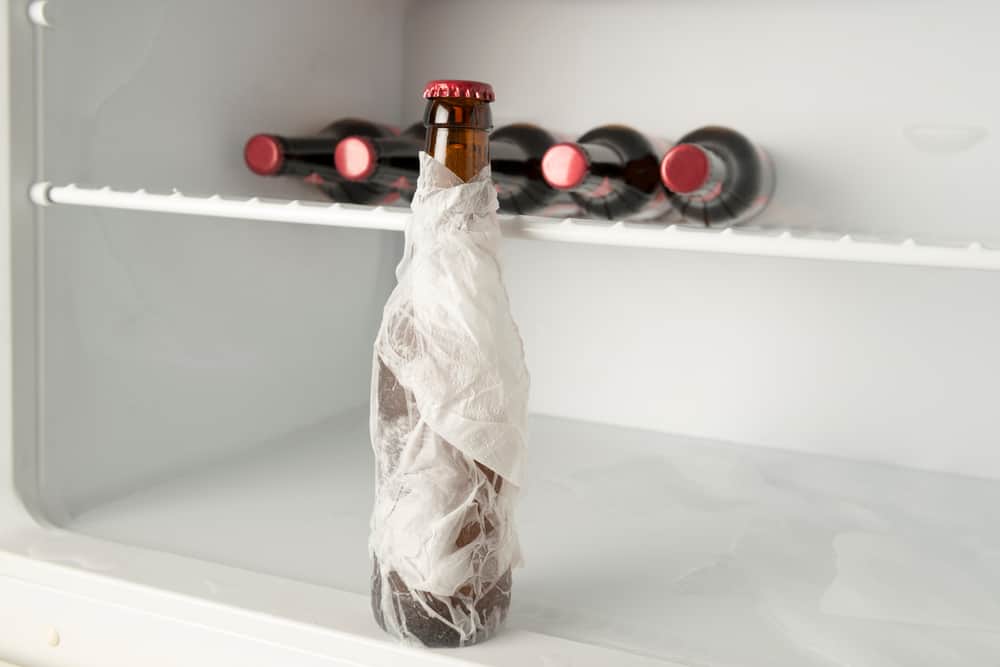Refrigerators are great for storing food and drinks, but how long does it take them to get cold? This is a question that many people ask themselves when they are trying to figure out what size refrigerator they need. As a rule, a small fridge can cool down more quickly than a large one, so you might want to keep this in mind if you live in an area with hot summers. So, how long does it take the appliance to cool down the food inside?

In this blog post we’ll explore several factors that affect cooling times. If you’re interested in buying a new fridge or want to know more about refrigeration technology check out our other posts on fridges and freezers as well!
Stantard temperature inside a fridge
The temperature inside refrigerators should be kept at or below 40°F to ensure safe food storage, according to the FDA. Freezers should be set to 0°F.
A digital readout on your refrigerator might show the temperature digitally. Otherwise, go to Amazon and buy a fridge thermometer (like this one here).

A thermometer is critical not just while the installation and cool down process but also during any temperature swings. As a result, it’s essential to check your refrigerator’s temperature on a regular basis.
However, don’t put food in the refrigerator before it has been safely kept at 40°F!
Standard cooling time
Full-size refrigerators take 12 hours to cool to the FDA-required food-safe temperature of 40°F. Cooling time, on the other hand, varies significantly by refrigerator model and brand, ranging from 2 to 24 hours. Mini fridges take 4 hours on average to cool down.

In general, there are two main reasons why a refrigerator might not be able to reach its full potential: either something is wrong with the unit itself, or external conditions prevent proper operation. We will discuss all the issues below.
Main factors implying cooling time
A fridge has to cool the food inside it before you can safely store and eat it. There are several factors that influence how long this takes, including:
- The most important cooling time factor: power
The power of your refrigerator will affect how quickly it gets cold inside. More powerful models are able to cool their fridge compartments more rapidly, so they may require less time than a smaller or older model before food is safe to eat/store without the risk of contamination with germs which cause illnesses like salmonella and E coli.
2. Does compressor implies cooling time?
The compressor is the part of your refrigerator that pumps coolant around, helping to maintain a constant temperature. It may take longer for the fridge to get cold if you have just turned it on because this will result in more warm air coming inside and mixing with the cooler air.
3. It’s rather fan which implies
A fan helps circulate cooled air within refrigerators. If there is no way for this circulating airflow to escape (for example blocked doors), then an appliance can overheat very quickly – which could cause malfunctions like tripped safety switches or even fires! You should also make sure that food doesn’t block any vents either as these are essential tools needed by fridges.
4. Starting temperatura of colling
The food will keep cold for longer if you can set your refrigerator to a colder temperature from the start. This way, it’ll have more time before reaching room temperature and won’t need as much cooling.
In some homes, particularly those in warmer climates or where central heating is on regularly during daytime hours, starting with a very cool setting may be an advantage because there’s less chance of hot air coming into contact with the fridge contents. In this case, you should bear in mind that warm items can take up valuable space which could otherwise store foods requiring lower temperatures (or vice versa).
5. Age and condition of the refrigerator
As a fridge gets older, it will get less efficient and may take longer to cool. If you’ve noticed that your food is spoiling faster than normal, then this could be due to poor insulation which results in hot air entering the machine more easily. You might consider purchasing a new model for extra peace of mind about how long your fridge can keep foods fresh.

6. Whether or not there is any food in the fridge
The stocked refrigerator coolig not so rap[dly as almost empty one.
7. How many times you open the door
Or how quick you open and close the door, it increase cooling time duration.
8. What kind of contents your refrigerator contains
For example liquids take longer time to get cold than solids. Thus, having too much beverages in your fridge will increase the cooling time significantly!
9. Whether there is a freezer compartment in your refrigerator
It takes more time to cool a refrigerator with freezer compartment.
If You want to know more
Finding the right fridge for your needs can be tricky. There are so many factors that affect cooling times, and knowing all of them is a key! In this blog post we’ve explored majority of factors that affect cooling time. If you’re interested in buying a new fridge or want to know more about refrigeration technology check out our other posts on fridges and freezers as well!
